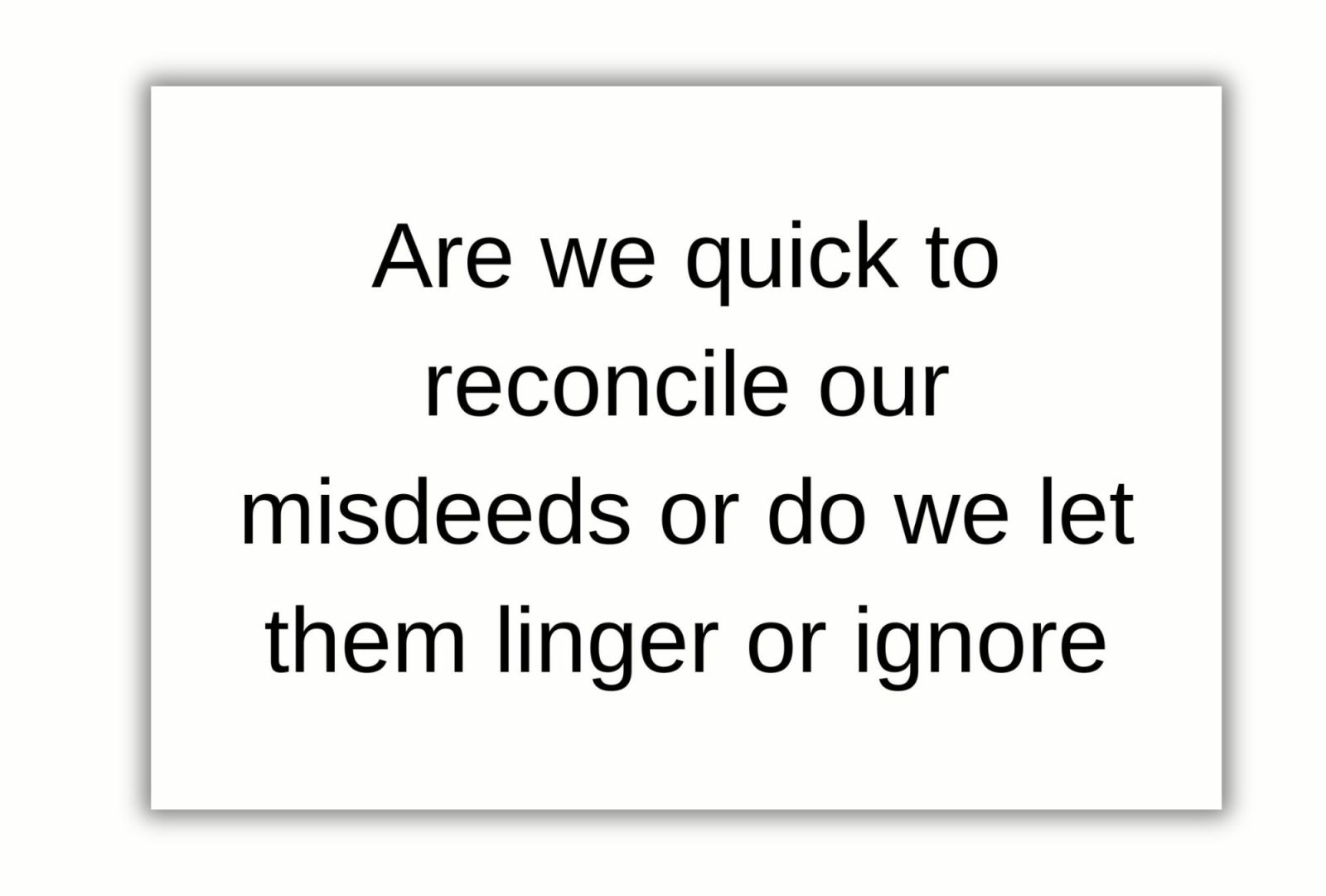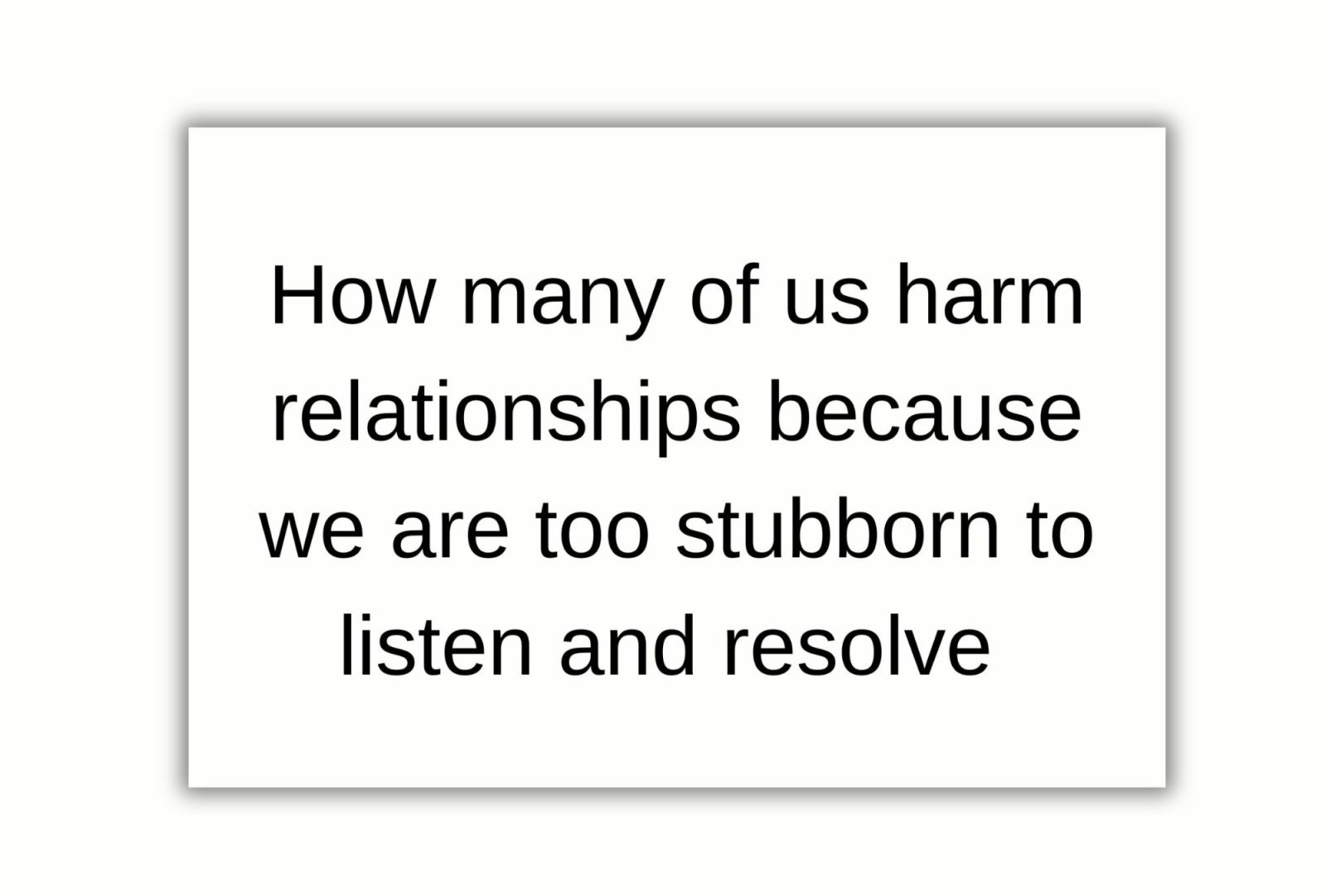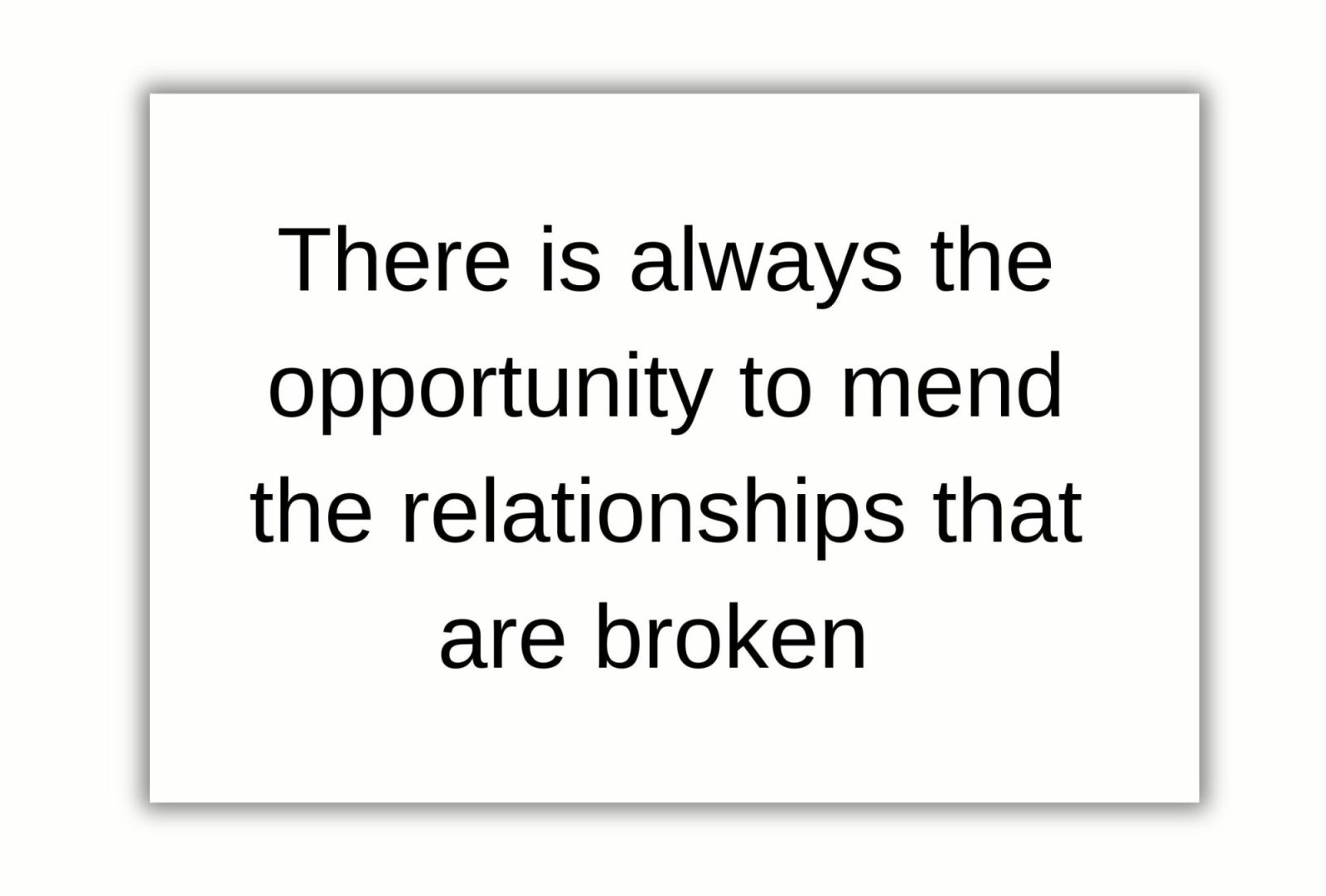.jpg)
Reflection by Dianne Austin;
First Reading Ezekiel 33:7-9;
Second Reading Romans 13:8-10;
Gospel Matthew 18:15-20
In this week’s text from the Gospel according to Matthew, the author explains a process of forgiveness and reconciliation to their community. I remember when growing up, the ups and downs relationships entailed. As children, we were quick to point the finger at any of our siblings if they did anything wrong or laid blame on them for some misgiving. There seemed to be a daily ritual of name calling, arguing or ‘dobbing’ on each other. Each time I had an argument, either with my siblings or friends, my parents would tell me to sort it out for myself. This wasn’t always easy and the stubborn side of me would often lay fault at the feet of the other person rather than taking ownership for my part in the disagreement or focusing on reestablishing the relationship with my peers. I remember my parents never engaged in the process unless the issues were major or I couldn’t resolve them by myself. I have come to learn the importance of never leaving matters unresolved and finding a way to reconcile after the anger and harsh words fade away.

So how is this lesson different for us today? Are we quick to reconcile our misdeeds or do we let them linger or ignore them, never acknowledging fault or listening to reason? How often do we allow those harsh words, often spoken in anger and hurt, to destroy our relationships because we are too proud to admit to or look past who’s at fault and reconcile what is broken?
When I compare these questions to the reconciliation process Matthew describes for the community of the Church, it highlights that none of us are perfect. We all have times when we have lapses of judgement or make poor decisions, breaking our connection with our family, friends or community. This was no different for Matthew’s community. In the Matthean context, a three-step procedure, which had close parallels in Judaism, was put into place for correcting and disciplining those members who didn’t follow the law.

First and foremost in this procedure, was to privately try to sort out the problem between the two people involved. Brendan Byrne explains that this step was designed to ‘preserve the dignity of the errant person’, an important message in the Catholic Tradition and one that is consistently communicated in the Church today. If this attempt didn’t work, then the next steps were more serious. The errant person would bring in two or three witnesses to try to reconcile the mistake and if that didn’t work then they would go to ‘the church’ or local Matthean community. Ultimately, for those who refused to listen or reconcile what they had done after following these steps, the person was excommunicated. Pretty harsh compared to today’s society but how many of us harm relationships because we are too stubborn to listen and resolve the issue? For Matthew’s community, each of these steps were taken seriously and were not to be questioned (much like not questioning my parents as a child). This process focused on dialogue; acknowledging fault, talking about what happened followed by instruction on how to reconcile with the community and God. Matthew is highlighting the value Christian community life and interaction have in the sight of God.

There is always the opportunity to mend the relationships that are broken and for all to be welcomed back into the Church community. Pope Francis cast light on this in an address in January this year:
"This is God's work: to come among us. If we consider ourselves unworthy, that does not stop him: he comes. If we reject him, he does not tire of seeking us out. If we are not ready and willing to receive him, he prefers to come anyway. And if we close the door in his face, he waits." (National Catholic Reporter, January 3, 2023)
So, do we give up when we can’t reconcile with the Church community? The simple answer is no. Matthew is outlining a clear procedure designed to help the sinner recognise and acknowledge the sin and return to the community of God at any time, it’s not subject to conditions nor is it time sensitive. Brendan Byrne writes, ‘God's mercy doesn’t set limits on forgiveness and reconciliation’, so why then should we?
.jpg)